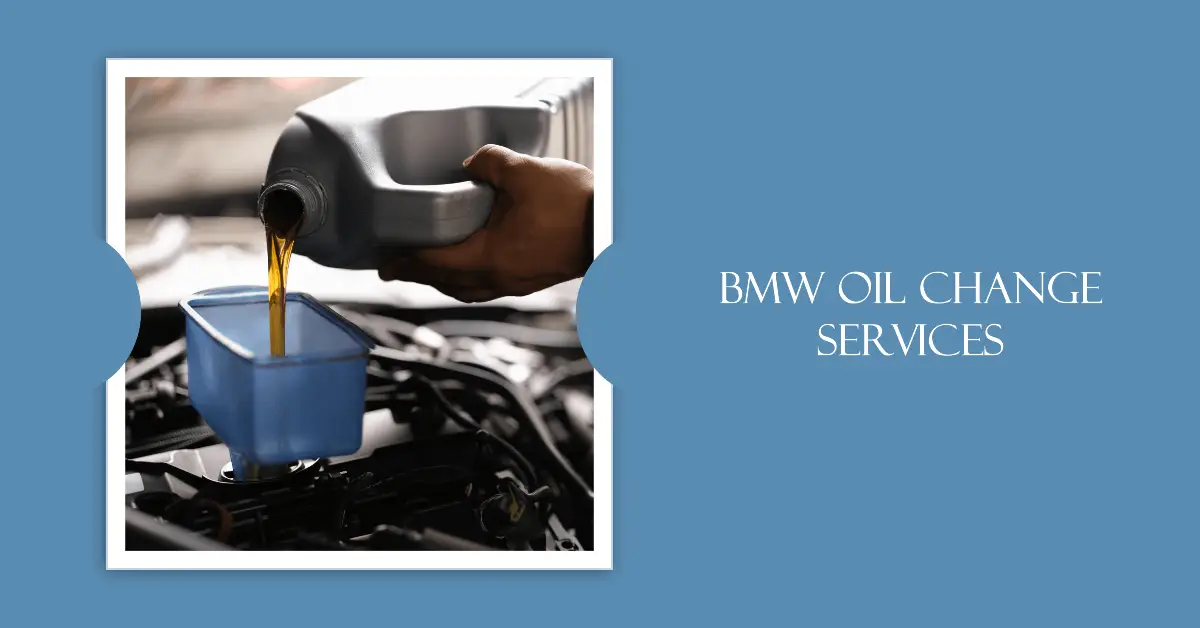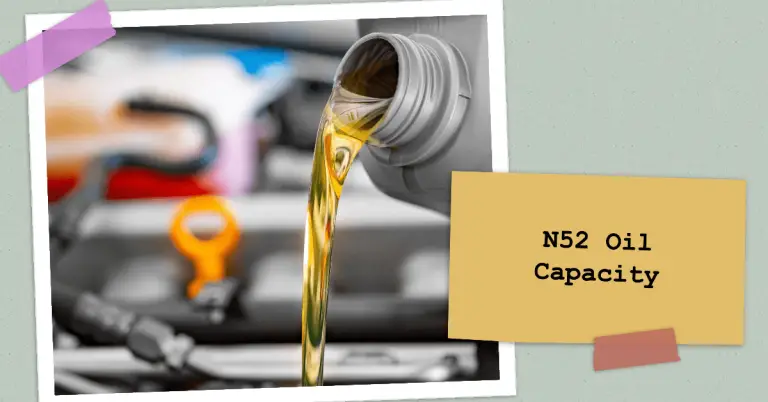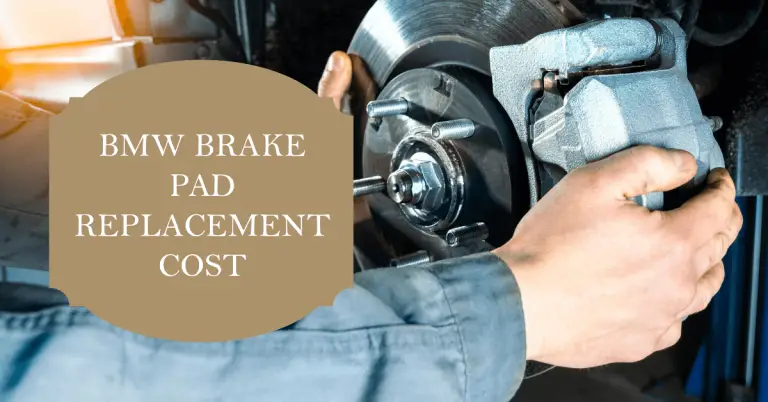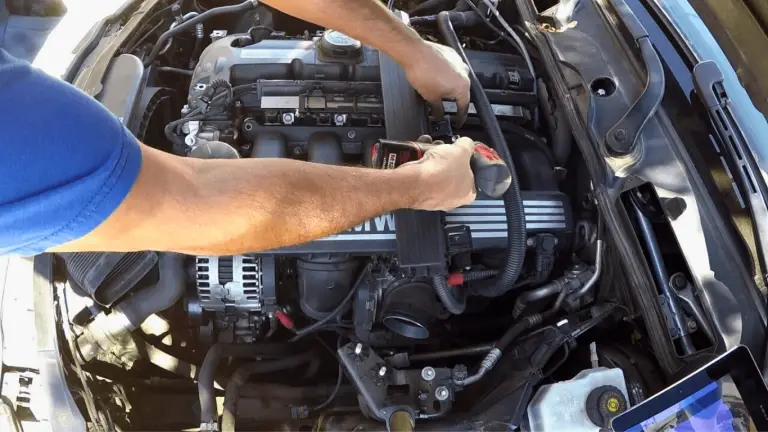Can I Get My BMW Oil Change Anywhere? Understanding Your Service Options
If you’re a proud BMW owner, you know that maintaining your vehicle with regular service is essential to keep it running smoothly for years to come. But when it’s time for your next BMW oil change, where should you take it – the dealership, a local repair shop, or your own garage?
The short answer is yes, you can get your BMW oil change done at any auto shop or dealership. However, some locations may be better suited for BMW maintenance than others.
When deciding where to get your BMW oil change, there are a few key factors to consider which we’ll explore in detail below:
- Cost and value at BMW dealers vs independent shops
- Oil change procedure – tools, parts, technicians
- Engine oil and filter recommendations
- Importance of factory oil change intervals
- Doing it yourself – pros and cons
Reviewing these key points will help you make an informed decision about the best oil change option for your BMW’s needs. Let’s dive in!
Getting an Oil Change at the BMW Dealership
The most obvious option for BMW oil changes is taking it to the dealership’s service department. As an authorized BMW repair shop, dealerships are permitted to perform factory scheduled maintenance and use original BMW parts.
There are a few advantages to using the dealership:
- Technicians are BMW certified – Mechanics at the dealership specialize in BMW models and have access to the latest technical information and diagnostic tools directly from the manufacturer. You can trust they know your BMW inside and out.
- OEM parts ensured – Dealerships only use original BMW oil filters, engine oil, and other fluids that align with factory specifications, which help maintain your BMW warranty.
- One-stop shop – In addition to oil changes, you can get inspections, warranty repairs, recalls, and other maintenance done efficiently in one spot.
However, there are some downsides to be aware of:
- Higher cost – Oil changes performed at the BMW dealership typically cost $150-$200, significantly more than independent shops. Some dealers may charge over $300 for full synthetic oil changes.
- Potential upselling – Service advisors may try to convince you to add on unnecessary extra services that are not due yet. Always refer to your owner’s manual.
So while dealerships offer convenience and specialized BMW technicians, the higher prices make regular oil changes very costly over time.
Using Independent Shops for BMW Oil Changes
To save money on maintenance, many BMW owners opt to get oil changes at independent auto repair shops like Jiffy Lube, Midas, Firestone, or a local mechanic. Prices are usually lower, averaging around $80-$120 for a standard oil change depending on location.
Here are some benefits of using an independent shop:
- Cost savings – Avoid premium dealership pricing and save 40% or more per oil change depending on the shop.
- Convenience – National chains like Jiffy Lube have extended hours nights and weekends for quick oil changes.
- Volume benefits – Higher oil change volume means technicians are usually efficient in getting you in and out.
However, there are a few precautions to keep in mind:
- Lack of specialization – Technicians at independent shops may not have as much specialized BMW training compared to the dealership.
- Use of aftermarket parts – Some shops may install cheaper, non-OEM oil filters which BMW does not recommend.
- Upselling issues – Just like dealers, independent shops will also try selling you extra services and parts you don’t need yet.
To get the best value oil change on your BMW at an independent shop, follow these tips:
- Verify they use full synthetic oil – Check that they will use the correct BMW recommended oil weight like 0W-20, not a conventional oil.
- Request an OEM oil filter – Make sure they will install an original BMW oil filter to maintain the warranty, even if there is an upcharge fee.
- Check for BMW technicians – Some independent shops employ former BMW techs. See if their staff has specialized training.
- Ask for dealer recommendations – Your BMW dealer’s service department may have suggestions for reputable independent shops in your area familiar with BMW maintenance needs.
As long as you verify the shop will use the proper oil and filter, an independent repair facility can provide quality oil changes on BMWs at significant cost savings over the dealership.
Key Oil Change Requirements for BMWs
To keep your BMW running at peak performance, there are a few specific requirements to look for during an oil change service:
Use the Recommended BMW Synthetic Oil
Never use conventional oil in a BMW engine – they are engineered for full synthetic oil only. BMW oil has special additives and a lower viscosity for optimal flow and protection.
Refer to your owner’s manual to find the specific oil grade recommended by BMW such as:
- 0W-20
- 5W-30
- 5W-40
- 0W-40
Using the manufacturer’s recommended grade of synthetic oil is required to maintain your BMW warranty and avoid engine problems.
Some shops may try to switch out the synthetic for a cheaper conventional oil to cut costs – don’t allow this!
OEM BMW Oil Filters Are Preferred
The oil filter is equally as important as the oil itself. It captures contaminants and prevents sludge build up.
BMW states that using original BMW oil filters is optimal to maintain your warranty and engine. Aftermarket filters may not have the same filtration quality and durability.
Request that an OEM BMW filter is installed, even if you have to pay a small upcharge over an aftermarket brand. Avoid no-name generic filters.
Reset the Oil Service Light
Once the oil change is complete, ensure that the shop resets the BMW service indicator light, so you know when the next oil change is due per the factory schedule.
Shops should plug in a diagnostic scanner to reset the light and check for any engine fault codes. Make sure this is done before paying.
Resetting the oil service reminder yourself is possible on some models if you prefer to do it. Refer to your owner’s manual for the reset procedure.
Follow the Manufacturer Oil Change Interval
BMW recommends oil service every 10,000 to 15,000 miles or 12 months, whichever comes first. Use this as your guide, not the “3 months / 3,000 mile” quick lube shop recommendation.
Driving conditions also impact oil change frequency. Short trips, extreme temperatures, and towing may necessitate more frequent changes.
Checking your owner’s manual for the optimal oil change interval based on driving habits and conditions is advised to avoid premature engine wear.
By following BMW’s prescribed oil type, oil filter, service reset, and oil change mileage, you can trust your oil is optimized. Now let’s examine your options for where to have this service performed.
Oil Change Options for BMW Drivers
When deciding where to take your BMW for its next oil change, you essentially have three options:
The BMW Dealership
As discussed earlier, the dealer offers guaranteed trained BMW technicians and use of 100% genuine BMW oil and parts. But the higher labor rates lead to oil change costs of $150-$300 on average.
Dealership oil changes give peace of mind everything is done to factory specifications, but your wallet will feel the impact over time.
Independent Repair Shops
From national chains like Jiffy Lube to your local trusted mechanic, independent shops provide more affordable oil changes starting around $80 with an average price of $100-$150 based on your location and the shop’s rates.
However, lower prices may lead to cutting corners with non-OEM filters or technicians less familiar with BMW maintenance needs. Do your homework.
DIY BMW Oil Changes
With some basic mechanical skills and tools, you can save the labor cost by performing oil changes yourself in your driveway or garage. This avoids paying for shop fees and marked up supplies.
The downside to DIY oil changes is the time commitment, cost of supplies, and proper disposal of used oil. But for hands-on BMW owners, doing your own maintenance can be rewarding.
Below we’ll take a closer look at the pros and cons of dealership vs independent vs DIY to help you pick the best oil change option for your BMW.
Dealership vs Independent Shop: Making the Best Choice for Your BMW
When you’ve narrowed it down to the dealership or an independent repair shop, how do you choose where to take your BMW? Let’s dive into the key factors to help you decide:
Convenience
- Dealerships – One benefit of the dealership is having all services under one roof. You can get inspections, recalls addressed, warranty work done, and various maintenance items checked off during an oil change appointment. This one stop shop convenience allows you to maximize your service visit.
- Independent Shops – For quick, basic oil changes, independent shops have the advantage. Chains like Jiffy Lube are open late and on weekends with no appointment needed. You’re in and out fast. However, any other maintenance needs would require a separate dealer visit.
Cost
- Dealerships – As discussed previously, BMW dealership oil changes typically run $150-$300 depending on your model and location. Higher labor rates and use of 100% genuine BMW parts results in premium pricing.
- Independent Shops – A standard oil change at an independent shop averages $80-$150 based on your area and the individual shop’s rates. Chains like Jiffy Lube promote deals like $40 off to attract budget-conscious drivers. With lower overhead and volume discounts on supplies, independents can charge less.
Parts
- Dealerships – You can trust dealers will use only genuine BMW engine oil, filters, and hardware. This maintains your BMW factory warranty and avoids any uncertainty about aftermarket part quality.
- Independent Shops – To offer lower pricing, independent shops may install less expensive aftermarket oil filters not approved by BMW. Make sure to request OEM parts even for an added fee to ensure optimal results.
Technicians
- Dealerships – As certified trained BMW technicians, dealership mechanics have specialized expertise in BMW maintenance procedures, computer diagnostics, and repair techniques. You know your car is in qualified hands.
- Independent Shops – While independent shop technicians are capable for basic maintenance, they may not have the same depth of BMW-specific training compared to dealer techs. Experience levels can vary greatly between shops.
Service Recommendations
- Dealerships – Due to higher labor rates, some dealers may encourage you to add on extra services or shorten intervals. Refer to your owner’s manual maintenance schedule and only approve what is due.
- Independent Shops – Just like dealerships angling for added business, independent shops also commonly recommend unnecessary fluid flushes, filters, and other maintenance ahead of schedule. Say no to upsells.
As you weigh the pros and cons, consider the importance you place on convenience, cost, OEM parts, specialized technicians, and avoiding unnecessary maintenance recommendations. This will point you towards the best shop for your BMW’s oil changes.
Doing Your Own BMW Oil Change at Home
For hands-on BMW owners who don’t mind getting their hands dirty, doing your own oil change is an appealing option. Here are some factors to think about:
- Cost Savings – Complete DIY oil changes can be done for 1/3 of the average shop price if you buy supplies in bulk. Investing in some tools like jacks and ramps yields ongoing savings.
- Customization – Oil change procedures can be tailored to your driving habits when you DIY. Use premium synthetic oils and Filters for added protection.
- No Upsells – Unlike shops angling for extra sales, you only pay for exactly what your BMW needs when doing the work yourself.
- Satisfaction – Successfully completing automotive maintenance boosts mechanical know-how and pride in your ride.
However, DIY oil changes do have some downsides to consider as well:
- Time Investment – Allow 1-2 hours for your first DIY oil change. Subsequent changes take less time once you have the process down. But it still requires a time commitment.
- Disposal – You’ll need to properly contain and dispose of used engine oil, which involves recycling centers or hazardous waste sites. Improper disposal harms the environment.
- Cost of Tools – To do the job right, you need drive ramps, quality jacks and jack stands, wrenches, oil drain pans and storage cans which all add up.
- Learning Curve – Watching tutorials is helpful but expect a mess and mistakes your first time until you get comfortable with the oil change procedure.
- Weather Issues – Difficult to perform oil changes in freezing temperatures or rain unless you have garage access.
With the right preparation and tools, DIY BMW oil changes can be rewarding. But consider the time and costs involved before tackling it yourself.
Maintaining Your BMW Engine with Proper Oil Changes
Now that you understand your oil service options for BMW maintenance, let’s briefly recap the critical importance of regular oil changes using the proper specifications:
- Full synthetic BMW oil flows better when cold, resists breakdown at high temps, and reduces friction and wear. Conventional oil lacks these benefits.
- OEM BMW oil filters have superior filtration to safely trap contaminants and prevent sludge from clogging engine passages.
- Following BMW’s prescribed oil change interval for your model and driving conditions avoids premature breakdown of oil.
- Resetting the service notification after oil changes ensures you adhere to factory recommendations for optimal maintenance.
- Small Differences in additives, viscosity and quality between brands can significantly impact engine protection over the long run.
In summary, always use the recommended BMW synthetic oil weight, OEM oil filters, and follow BMW oil change interval recommendations for maximum engine protection and years of trouble-free service life from your BMW.
Choosing Where to Get Your Next BMW Oil Change
As a valued BMW owner, deciding where to get your next oil change essentially comes down to:
- Dealership – for specialized technicians and guaranteed OEM parts.
- Independent Shop – for affordability if they use proper BMW oil and filters.
- DIY – for cost savings but requires more time and skills.
Whichever oil service option you choose, be sure to use the manufacturer’s recommended oil and filter specifications and stick to their prescribed oil change intervals.
With the right lubrication and protection, your BMW’s engine will continue delivering world class performance and handling for many miles to come!
For more guidance on BMW maintenance tips and best practices, check out our blog or contact one of our expert automotive advisors. Whether you drive an M5, 3 series, X3 and more, we’re here to help keep your Ultimate Driving Machine in peak condition.







